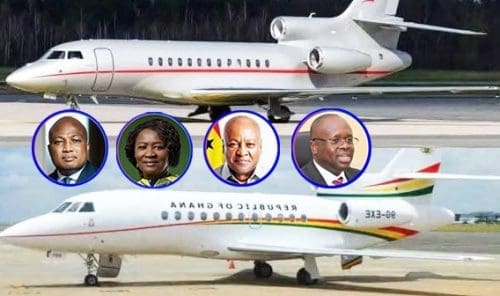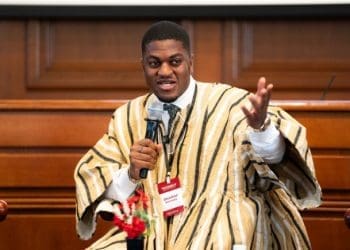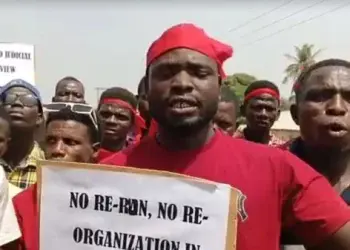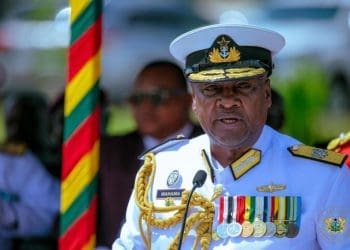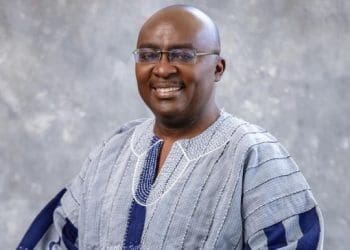The National Democratic Congress (NDC) has found itself at the centre of a storm of political hypocrisy, following confirmation that Vice-President Professor Jane Naana Opoku-Agyemang returned to Ghana aboard a private jet after a medical emergency in the United Kingdom though the NDC kicked against the use of private jets.
The development, which comes barely six months after the party assumed office, has reignited a fierce national conversation about VVIP travel, state asset maintenance, and Ghana’s long-troubled experience with presidential jets.
At the heart of the backlash is the NDC’s past – a well-documented record of fiercely criticising the New Patriotic Party (NPP) administration of President John Agyekum Kufuor and Nana Addo Dankwa Akufo for what it labelled “extravagant”, “wasteful”, and “profligate” buying presidential jets and use of private jets.
But with Vice-President Opoku-Agyemang flying home aboard a private aircraft due to the unavailability of the country’s official presidential jet, the Falcon 900EX, the NDC now finds itself on the defensive, and many observers argue it has been caught in a web of its political rhetoric.
Kwame Nkrumah acquired DH125
Ghana’s complicated relationship with presidential aircraft dates back to 1962, when Osagyefo Dr. Kwame Nkrumah acquired the DH125.
It was the country’s first taste of presidential luxury aviation — but it wouldn’t be the last.
Gen. I.K. Acheampong purchaseda Fokker 28
In 1976, General I.K. Acheampong added the Dutch-made Fokker 28, dubbed “the Flying Coffin” in later years.
J.J. Rawlings procured a Gulfstream GIII
Then, in 1998, under the Jerry John Rawlings administration, Ghana purchased the Gulfstream GIII.
This was the first acquisition to generate real public controversy. President John Agyekum Kufuor, who succeeded Rawlings, refused to use the jet — questioning the circumstances under which it was acquired, especially since it did not go through parliamentary approval and was reportedly shrouded in secrecy.
Kufuor acquired Falcon 900 EX-Easy
Eventually, Kufuor’s government sold the Gulfstream in 2006 and ordered the Falcon 900 EX-Easy in 2008.
The Falcon was delivered in 2010 and has since served as Ghana’s official presidential aircraft, capable of carrying 12 passengers.
NDC, which opposed Falcon 900 EX inaugurated it
It came at a time when the President John Evans Atta Mills administration, then in opposition, had kicked against the idea of purchasing a new presidential jet, only to inaugurate it with fanfare after taking office.
The then Defence Minister, Lt. Gen. J.H. Smith, sought to temper accusations of hypocrisy by framing the acquisition as a national, not partisan, endeavour.
Yet, the NDC’s reversal at the time was glaring — and it would not be the last.
NDC’s history of double standards: From Mills to Mahama
President John Evans Atta Mills, though known for his frugality, often chose to travel commercially. But this decision came at a significant cost to safety and convenience.
His Communication Director, Koku Anyidoho, would later admit that Mills’ insistence on flying commercial created severe logistical problems, increased risks, and led to at least one emergency charter — a private flight from the USA to Venezuela.
In hindsight, Anyidoho’s comments offered an inadvertent justification for the state’s investment in dedicated aircraft for the presidency.
Prof Mills procured Embraer
Indeed, the Mills administration later procured an Embraer aircraft from Brazil — another move that subtly betrayed the NDC’s earlier opposition to state-funded presidential aircraft.
President John Mahama also faced travel challenges.
Reports emerged that both he and then-Vice President Mahama had narrowly escaped fatal aviation mishaps due to poor domestic air arrangements.
Yet, when President Akufo-Addo opted to charter private jets — citing the Falcon’s limitations in capacity and range — the NDC unleashed a full-scale attack.
The Akufo-Addo years: Accusations and propaganda
President Akufo-Addo’s use of private jets, particularly during long-haul trips where the Falcon required refuelling stops, became a lightning rod for NDC criticism.
The party and its MPs accused him of reckless spending, with then-Minority Leader Haruna Iddrisu and Ranking Member on the Foreign Affairs Committee, Samuel Okudzeto Ablakwa, describing the charters as “luxurious” and “unjustified.”

These accusations became central to the NDC’s propaganda machine, used to project the NPP as detached from the suffering of ordinary Ghanaians, especially during economic hardship.
The opposition even stalled a government plan to acquire a new presidential jet, casting it as unnecessary extravagance.
Yet behind the scenes, senior security and protocol officers were growing increasingly concerned about the Falcon 900’s age, its limited passenger capacity, and safety concerns, many of which had plagued the NDC administrations too.
2025 and the great U-Turn
Fast forward to May 2025. Barely five months into its return to power, the NDC is now trying to justify Vice-President Opoku-Agyemang’s use of a private jet to return from the UK.
Defence Minister Dr. Edward Omane Boamah, answering a parliamentary question from NPP MP Vincent Ekow Assafuah, explained that the Falcon 900 had been grounded in France since March 11, 2025.
The aircraft, according to Dr. Boamah, is undergoing extensive maintenance due to serious corrosion in several of its key systems, making it unfit for flight.
“Let’s not reduce this important conversation to NDC versus NPP,” the Minister pleaded.
“This is a matter of national security, sovereignty, and responsible maintenance of state assets.”
The irony was lost on no one.
Selective outrage and convenient amnesia
Dr. Boamah’s call for depoliticisation — though valid — is hard to accept given the NDC’s long history of politicising presidential travel.
When in opposition, the party had little tolerance for explanations about the Falcon’s limitations.
But now in government, the same reasoning is being deployed to justify the Vice-President’s use of a private jet.
The NDC appears to be guilty of the very thing it accused the NPP of: double standards, selective outrage, and exploiting public sentiment for political gain.
In fact, this latest episode reinforces a troubling pattern. When in power, the NDC finds practical justification for actions it had once vilified.
From inaugurating a jet they campaigned against in 2010, to justifying private jet use in 2025, their track record is marked by inconsistency.
Time for a mature conversation on presidential logistics
The issue here is not whether the Vice-President should have flown on a private jet during a medical emergency.
It is whether Ghana’s political class can finally admit that safe, efficient, and cost-effective VVIP travel is a national imperative, not a political indulgence.
Ghana needs a long-term plan that moves beyond propaganda.
A newer, larger, multi-purpose aircraft capable of serving both the Air Force and presidential needs would eliminate the recurring problem of chartered flights, high costs, and security risks.
The hypocrisy exposed by the NDC’s U-turn must now lead to a more honest national conversation about how Ghana manages the presidency, not for one party, but for the state.
As it stands, the NDC has lost credibility on this matter.
And unless it embraces consistency and maturity, it will continue to be haunted by the ghosts of its own rhetoric.
The real scandal is not that the Vice-President used a private jet. It is the same political actors who spent years weaponising presidential travel are now trying to silence scrutiny when the shoe is on the other foot.
Ghana deserves better than partisan outrage.
It deserves truth, consistency, and responsible governance, regardless of who is in power.

